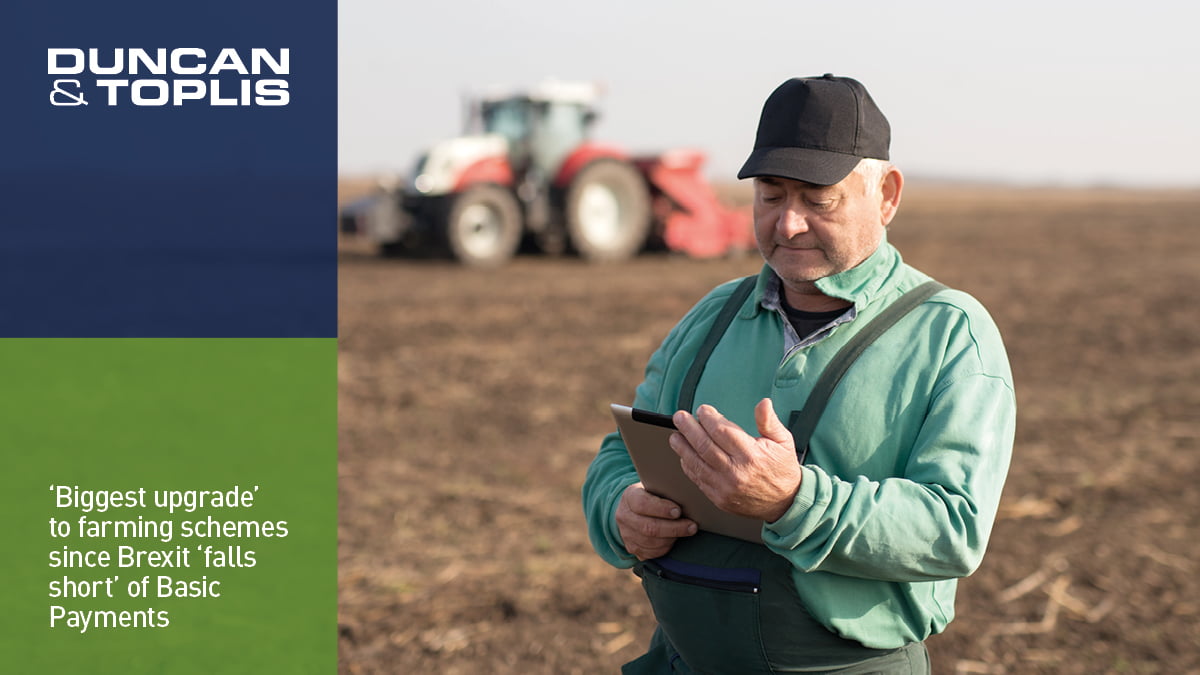Will Reform UK Policies Benefit UK Farming?

Table of Contents
Reform UK's Stated Agricultural Policies: A Detailed Look
Reform UK's agricultural platform centers on several key proposals aiming to reshape the UK farming landscape. Their stated goals include reducing bureaucratic burdens, fostering competitiveness, and prioritizing food security. Specific policy proposals, as outlined on their website (link to official policy document here), include:
- Subsidy Reform: A shift away from the current system of direct payments towards a more performance-based model rewarding environmentally friendly practices and efficient food production. This aims to remove what they see as inefficient and wasteful spending.
- Trade Deal Prioritization: Negotiating favorable trade deals globally, reducing reliance on the EU market and opening up new export opportunities for British farmers.
- Environmental Regulation Review: A streamlining of environmental regulations, reducing red tape and administrative burdens on farmers while maintaining environmental standards. They propose a risk-based approach to regulation.
- Investment in Domestic Food Production: Promoting investment and innovation in British agriculture to enhance domestic food production and reduce reliance on imports, bolstering food security.
These policies are presented as a means to boost the competitiveness of UK farming and strengthen its resilience in a post-Brexit world. However, a critical analysis is necessary to understand their full impact. Keywords: Reform UK agricultural policy, subsidy reform, trade deals, environmental regulations, farming support.
Potential Benefits for UK Farming Under Reform UK Policies
Reform UK argues their policies will deliver several key benefits for UK farming:
Increased Competitiveness and Market Access
By prioritizing trade deals and reducing barriers to international trade, Reform UK aims to open new export markets for British farmers. This could lead to:
- Expanded Export Markets: Access to previously untapped markets in Asia, Africa, and the Americas.
- Reduced Import Tariffs: Lowering the cost of exporting British produce, increasing profitability.
- Increased Farm Income: Higher demand and better prices for British agricultural products.
This increased competitiveness could be a significant boon for larger farms specializing in export-oriented products. Keywords: Export markets, trade agreements, farm income, market access, competitiveness.
Simplified Regulations and Reduced Bureaucracy
Reform UK's emphasis on reducing red tape could significantly benefit farmers by:
- Streamlined Application Processes: Less time spent on administrative tasks, freeing up time for farming.
- Reduced Compliance Costs: Lower expenses related to paperwork and regulatory compliance.
- Increased Farming Efficiency: More time and resources dedicated to core farming activities.
This simplified regulatory environment could prove particularly beneficial for smaller farms with limited administrative resources. Keywords: Red tape reduction, regulatory burden, farming efficiency, bureaucratic simplification.
Focus on Food Security and Domestic Production
Reform UK emphasizes the importance of food security, proposing policies to:
- Boost Domestic Production: Investments and incentives to increase the volume and diversity of food produced within the UK.
- Reduce Reliance on Imports: Strengthening the resilience of the UK food supply chain.
- Support British Farming: Policies designed to safeguard and support British farmers.
This focus on domestic food production aims to protect the nation from global food price volatility and supply chain disruptions. Keywords: Food security, domestic food production, British farming, import reduction, self-sufficiency.
Potential Drawbacks and Challenges of Reform UK's Approach
While Reform UK's proposals have merits, several potential drawbacks and challenges must be considered:
Impact on Environmental Protection
The emphasis on deregulation raises concerns about the potential impact on environmental sustainability:
- Weakened Environmental Standards: Relaxing environmental regulations could lead to increased pesticide use and pollution.
- Negative Impact on Biodiversity: Reduced protections could threaten vulnerable habitats and species.
- Loss of Environmental Incentives: Changes to subsidy schemes could diminish incentives for environmentally friendly farming practices.
Balancing economic growth with environmental protection is crucial for the long-term health of the agricultural sector and the wider environment. Keywords: Environmental protection, biodiversity, pesticide use, sustainable farming, environmental standards.
The Role of Subsidies and Support for Small Farms
Reform UK's proposed changes to subsidy schemes could disproportionately affect smaller farms:
- Reduced Support for Small Farms: A shift away from direct payments could disadvantage smaller operations lacking the resources to adapt to performance-based systems.
- Increased Farm Consolidation: Smaller farms might be forced to merge or leave the industry, leading to greater concentration of land ownership.
- Negative Impacts on Rural Economies: The loss of smaller farms could negatively affect rural communities and economies.
Careful consideration is needed to ensure that support mechanisms remain in place to protect the viability of smaller farms and the vitality of rural communities. Keywords: Farming subsidies, small farms, farm consolidation, rural economy, agricultural support.
Uncertainty and Economic Risk
Implementing significant policy changes always carries inherent economic risks:
- Market Volatility: Changes in trade relationships and regulations could introduce significant market volatility.
- Impact on Farm Investment: Uncertainty about future policies might discourage farmers from investing in their businesses.
- Risks Associated with Trade Negotiations: Negotiating new trade deals carries inherent risks and uncertainties.
Careful planning and mitigation strategies are essential to minimize these risks and ensure a smooth transition to the new policy framework. Keywords: Economic risk, market volatility, farm investment, trade negotiations, economic uncertainty.
Conclusion: Will Reform UK Policies Benefit UK Farming? A Balanced Perspective
Reform UK's agricultural policies present a mixed bag of potential benefits and drawbacks. While proposals to increase competitiveness and simplify regulations could boost efficiency and profitability for some farmers, concerns remain about the potential negative impacts on environmental protection and the viability of smaller farms. The success of these policies will hinge on careful implementation and a balanced approach that prioritizes both economic growth and environmental sustainability. The ultimate impact on UK farming will depend on a multitude of factors, including global market conditions and the effectiveness of any support mechanisms put in place.
To form your own informed opinion on Reform UK's impact on UK farming, further research is encouraged. Explore the Reform UK website, government reports on agricultural policy, and publications from agricultural organizations. Understanding the nuances of these complex issues is crucial for shaping the future of British agriculture.

Featured Posts
-
 Milwaukee Rental Market How To Find An Apartment
May 03, 2025
Milwaukee Rental Market How To Find An Apartment
May 03, 2025 -
 Aid Ship Sos Drone Attack Near Malta Gaza Relief At Risk
May 03, 2025
Aid Ship Sos Drone Attack Near Malta Gaza Relief At Risk
May 03, 2025 -
 Underrated 2024 Game Heads To Ps Plus This Month
May 03, 2025
Underrated 2024 Game Heads To Ps Plus This Month
May 03, 2025 -
 Rossiyskaya Federatsiya I Chekhiya Obsuzhdenie Ekonomicheskogo Vzaimodeystviya
May 03, 2025
Rossiyskaya Federatsiya I Chekhiya Obsuzhdenie Ekonomicheskogo Vzaimodeystviya
May 03, 2025 -
 Is The Eco Flow Wave 3 The Best Portable Climate Control Solution A Review
May 03, 2025
Is The Eco Flow Wave 3 The Best Portable Climate Control Solution A Review
May 03, 2025
